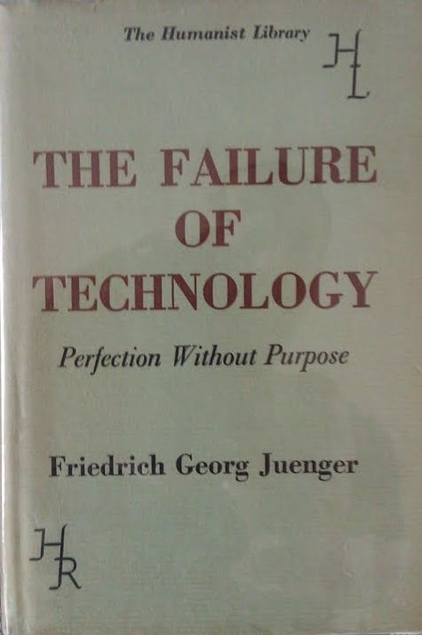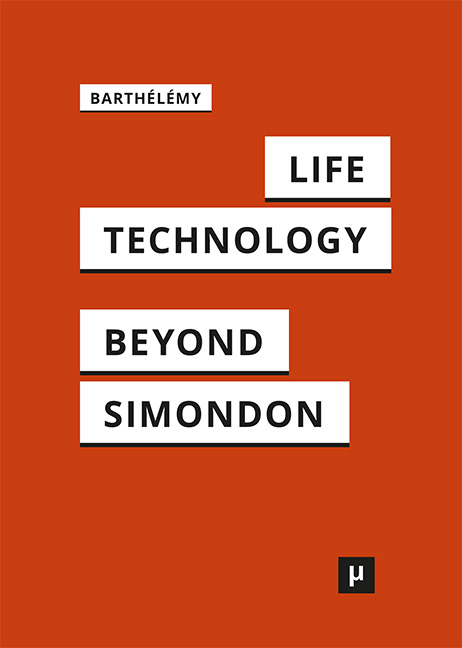Ernst Cassirer: Form and Technology (1930–) [DE, EN]
Filed under paper | Tags: · philosophy, philosophy of technology, technology, theory
“Ernst Cassirer’s outline of a philosophy of technology in the essay ‘Form und Technik’ (1930) was written against the background of the crisis of modernity in the Weimar Republic. It may be read, along with Heidegger’s ‘The Question Concerning Technology’, as a continuation of their debate in Davos in 1929. However, Cassirer’s unnamed antagonist here is Oswald Spengler, in whom Cassirer saw a leading representative of the widespread irrational and fatalistic interpretations of modernity that threatened the future of the Weimar Republic. Cassirer’s reading of the disclosive, liberating possibilities of technology points to an affinity between modern technology and art as opposed to the affinity between ancient technology and art that Heidegger discerns in the original conception of techne.” (David Roberts, 2012).
First published in Kunst und Technik, ed. Leo Kestenberg, Berlin: Wegweiser, 1930, pp 15-61.
Reprinted in Cassirer, Symbol, Technik, Sprache. Aufsätze aus den Jahren 1927–1933, eds. Ernst Wolfgang Orth and John Michael Krois, Hamburg: Meiner, 1985, pp 39-91.
Reprinted in Cassirer, Gesammelte Werke. Hamburger Ausgabe. Band 17: Aufsätze und kleine Schriften (1927-1931), ed. Birgit Recki, Hamburg: Meiner, 2004, pp 139-183.
English translations:
Translated by Wilson McClelland Dunlavey and John Michael Krois, in Ernst Cassirer on Form and Technology, eds. Aud Sissel Hoel and Ingvild Folkvord, Palgrave Macmillan, 2012, pp 15-53.
Translated by Steve Lofts, Antonio Calcagno, John Krois, and Wilson Dunlavey, in Cassirer, The Warburg Years (1919-1933): Essays on Language, Art, Myth, and Technology, Yale University Press, 2013, pp 272-316. Trans. from 1985 edition.
German editions:
HTML (1930)
PDF (1985)
DOC (2004)
English translations:
PDF (2012)
PDF (2013)
Friedrich Georg Jünger: The Failure of Technology: Perfection Without Purpose (1946–)
Filed under book | Tags: · automation, critique of technology, environment, philosophy of technology, technology

Written in the spring and early summer of 1939 and “first published in German as Die Perfektion der Technik in 1946, F.G. Jünger argues that technology has become second nature and will bring “the downfall of the state”. F.G. Jünger, a literary writer and essayist, was the brother of Ernst Jünger. Both represented the intellectual right-wing of the ‘conservative revolution’ in the Weimar Republic and had ambivalent relations to the Third Reich.
The Failure of Technology was a major source for Heidegger’s 1950s turn towards a philosophy of technology in which technology, as second nature, determines human existence.” (FC)
Translated by F.D. Wieck
Introduction by Frederick D. Wilhelmsen
Publisher H. Regnery, Hinsdale, IL, 1949
New edition, 1956
xvi+189 pages
via FC
EPUB
PDF (Introduction missing)
Jean-Hugues Barthélémy: Life and Technology: An Inquiry Into and Beyond Simondon (2015)
Filed under book | Tags: · biology, cybernetics, philosophy, philosophy of technology, technology

“The philosophy of Gilbert Simondon has reinvigorated contemporary thinking about biological and technological beings. In this book, Jean-Hugues Barthélémy takes up Simondon’s thought and shows how life and technology are connected by a transversal theme: individuation. In the first essay, Barthélémy delivers a contemporary interpretation of Simondon’s concept of ontogenesis against the backdrop of biology and cybernetics. In the second essay, he extends his reflections to propose a non-anthropological understanding of technology, and so sets up a confrontation with the work of Martin Heidegger.”
Translated by Barnaby Norman
Publisher meson.press, Lüneburg, Dec 2015
After Simondon series
Creative Commons Attribution-ShareAlike 4.0 International (Part 1 under CC-BY-NC-ND 4.0)
ISBN 9783957960702 (Print), 9783957960719 (PDF)
71 pages
For more on Simondon see Monoskop wiki.
Comment (0)
